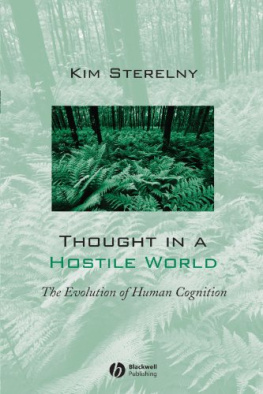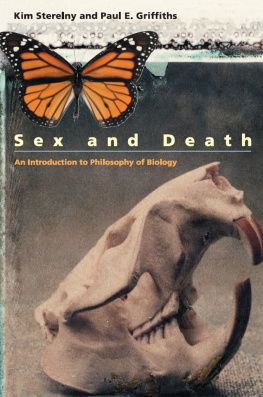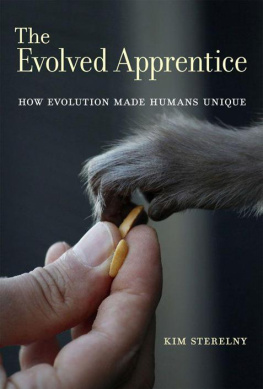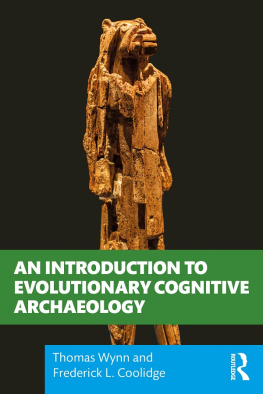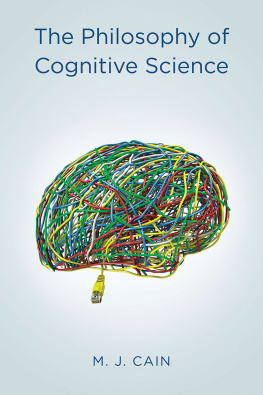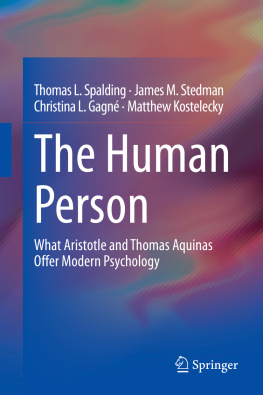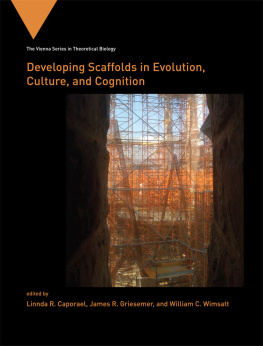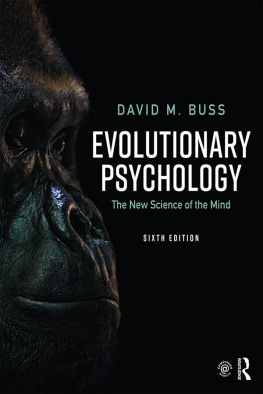





CONTENTS
viii
PREFACE
This book has been a long time coming, and what has finally arrived bears little resemblance to the manuscript I first planned. This book started life as a monograph on the methodological challenges facing cognitive ethology. Something happened, and instead it has mutated into an exploration of the evolution of cognition, especially human cognition.
In the work as it is now, there are four projects. One is to develop and vindicate a set of analytic tools for thinking about cognition and its evolution. A second is to develop a substantive theory of the evolution of human uniqueness. We are cognitively, socially, and sexually very unlike the other great apes, despite our relatively recent separation from their lineages. I argue that human social and cognitive evolution is the result of the operation of unusual evolutionary mechanisms. The third project is to explore, from this evolutionary perspective, the relationship between folk psychology and an integrated scientific conception of human cognition. What emerges from this exploration, I think, is a qualified and partial defense of the idea that folk psychology identifies some fundamental organizational features of the human mind. The folk have got something important right about how our minds work. But they have not got as much right as, for example, Jerry Fodor and Fred Dretske have supposed. This view of the status of folk psychology presupposes a particular conception of how and why human minds have evolved, and hence this third project depends on the second. A fourth is to develop a critique of, and an alternative to, nativist, modular versions of evolutionary psychology.
These themes are developed over three stages. Part I introduces the tools, and uses them in articulating a natural history of belief and preference. By the end of chapter 5, I hope I have developed a speculative but plausible evolutionary history of belief-like and desirelike states. In doing so, I hope to show that these fundamental categories of folk interpretative practice latch onto organizational features of our minds.
"Belief-like" (and "desire-like") are somewhat weaselish expressions, and I confess to using them advisedly, to dodge controversies of which I want no part. On some views, the folk have a very rich, if implicit, theory of the nature of belief and preference, a theory that specifies very rich functional, inferential, and epistemic roles. While I have an account of the evolution of cognitive states and a cognitive architecture that approximates these roles, that approximation is rough. Suppose that my picture of the evolution of the mind turns out, miraculously, to be true in every detail. To settle (say) whether my "decoupled representations" are really beliefs, we would need both a well-developed account of those folk commitments about belief, and a theory of reference for folk psychological vocabulary telling us the extent to which folk psychology's vocabulary depends on the accuracy of folk psychology's picture of the mind. While I have views on these matters, they are not the focus of this book. If my evolutionary scenario pans out, my suggestion is to think of the relationship between decoupled representation and belief as analogous to that between contemporary evolutionary accounts of species and speciation, and folk biological species concepts. Though the concept varies somewhat from culture to culture, all cultures, it seems, have a species concept (see chapter 10). While these concepts are embedded in false pictures of the natural world, and are incomplete in various ways, they clearly latch onto an important, robust feature of the natural world. The evolutionary species concept (and the theory of which it is a part) explain the phenomena to which that folk concept is an at least partially correct response. Likewise, I suggest that decoupled representations are cognitive states that are (partially) responsible for the phenomena to which the folk concept of belief is an at least partially correct response.
Part II develops an explanation of the unique aspects of human evolution. As such, it involves no direct discussion of the third project: the relationship between folk theory and a biologically informed theory of the human mind. But in developing such a biologically informed picture, part II is foundational both to that project and to the forth project of developing an alternative to nativist evolutionary psychology. It begins with a defense of the idea that we can go beyond mere storytelling to develop a testable theory of hominid cognitive evolution. It goes on to identify three factors whose confluence makes human evolution distinctive. We are an extraordinarily cooperative species, and group selection has been very important in hominid evolution. So too has selection for developmental plasticity. And so too have hominid capacities for modifying our environment and that of our offspring. To a considerable extent, hominid selective landscapes are the product of the actions of earlier hominids. We have largely made the worlds in which we have lived. Individually, none of these factors is restricted to our lineage. But their combination is uniquely hominid, and that combination explains our distinctive evolutionary trajectory.
Part III further develops this picture, partially in critical contrast with the received wisdom of evolutionary psychology. Chapter 10 is largely, though not solely, a critique of massively modular views of our mind and its evolution. Chapter 11 is largely, but not solely, the application of my picture of human evolution to debates about our theory of mind. One thread that runs through these last two chapters is a rejection of the example of language as a model for thinking about human cognitive capacities. Despite Chomsky's indifference to evolutionary issues, massively modular theories of mind owe their inspiration to his theory of language. While I have no special quarrel with that theory, I argue that it is an extremely misleading template for thinking about cognition more generally. One way humans structure their environment is by structuring the learning environment of their offspring, and in some cases this environmental structuring explains the rapidity and resilience of the development of special skills - a rapidity and resilience that nativists put down to internal endowment.
Books are hard to write, and most people who write one get a fair bit of help. I certainly did, and it is a pleasure to publicly thank those who have helped this book move from the possible to the actual. My biggest intellectual debt, without doubt, is to Peter Godfrey-Smith. He has read the whole manuscript; indeed, he has read quite a lot of it in several versions. His feedback was thoughtful, extensive, helpful, and usually annoyingly right. This is a far better book as a result of his interventions. It would probably be better still if I had accepted even more of his advice. Others have read chunks of the draft and responded helpfully: Matteo Mameli, Thomas Suddendorf, Philip Gerrans, Colin Allen, Brett Calcott, Ian Ravenscroft and David Sloan Wilson. In addition, I inflicted a pretty rough draft on the students of Caltech early in 2002, and Jim Woodward and Fiona Cowie, who attended those classes, helped filter sense from nonsense. Thanks too to Caltech for proving such a helpful institutional basis at the beginning of this year as the draft moved from the unreadable to the merely rough. Chapters were turned into papers, and these were inflicted on the Australian and New Zealand versions of the Australasian Association of Philosophy conferences, and also on audiences at Victoria University of Wellington, the University of Illinois (Chicago); Rutgers University, and Florida State University.

